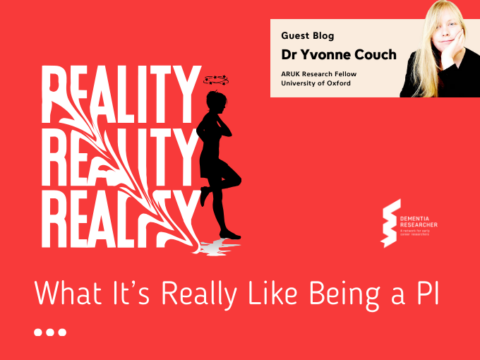I have been toying with the idea of writing a blog on striking for some time. I find myself dwindling – even now, finding it difficult to pinpoint exactly where I stand. Being in full support of the strikes but at the same time feeling unable to take part. I decided to finally write about striking as an early career researcher (ECR) because I genuinely feel this is something we do not talk about but disproportionately affects us the most. In this blog I want to explore how the current higher education system affects ECRs, the barriers that forgo our right to strike and what can be done about it.
Across February and March, the University and College Union (UCU) has announced 18 strike days across 150 higher education insitutions1 – the highest number of days ever to be announced. For me and my partner – not an ECR – the months ahead are looking quite different. He has chosen to strike whereas I will be very much continuing on as business as usual. Why is that?
Before we delve into how the current higher education climate is disproportionally affecting ECRs and why I feel unable to strike, let’s define what it actually means to take strike action and what academics are striking about.
Once strike action has been confirmed by the UCU – which is decided via an industrial action ballot of union members – an individual participating in strike action should abstain from doing any activity that directly or indirectly represents their employer. For example: teaching, administrative tasks, attending meetings, replying or sending emails or conducting research2. Strikes at each institution are managed at a local level and often organise picket lines at specific university buildings to show representation and get support from students and other colleagues. Crucially, strikers are not paid by their employer on strike days and a strike is only declared once all other avenues of discussion with employers have been exhausted2.
The most significant reason for strike action is a change to the pension scheme affecting all UK academics (there are other reasons, and some are specific to certain institutions). This followed from a valuation taken during the economic standstill and downturn resulting from the COVID-19 pandemic. Not surprisingly, conducting a valuation at a time of negative economic growth greatly undervalued the scheme, showing a stark deficit. Now that the economy has gotten back on its feet and profits are recuperating, there has been a refusal to re-evaluate the scheme, which a lot of strikers – not surprisingly, are calling out as dishonest. This change in pension contributions, affects ECRs the most, as we are the ones that have had the least amount of time paying into a pension scheme with better benefits, as well as finding ourselves paying higher monthly contributions. The UCU estimates that under the new pension package, an average lecturer is set to lose 35% of their future guaranteed retirement income and for ECRs the losses reach hundreds of thousands of pounds3. On top of this, not all of us are able to enrol on a pension scheme, which nicely brings me onto the next point: the prevalence of fixed-term contracts in academia.
If you haven’t experienced being on a short fixed-term contract yourself, you most likely know an ECR that has. Some of these fixed-term contracts have durations of less than one year. Not surprisingly this impacts career planning, mental health and fosters financial uncertainty. Furthermore, being on a short-term contract is unconducive for writing and applying for grants, even though securing funding is a main criteria ECRs have to tick to apply for a permanent academic position.

UCU is demanding a meaningful pay rise to deal with the cost-of-living crisis as well as action to end the use of insecure contracts and demanding employers revoke the cuts to pensions.
Short fix-term contracts also give rise to another problem: the constant need to re-locate to ensure continued employment. This requires support from family members and/or partners for it to work. Frequent uprooting can lead to cultural isolation and impact that individual’s ability to foster relationships as well as family planning. Furthermore, some universities provide no financial support, also known as relocation fees, to cover the expenses of moving. Relocation, thus becomes a personal burden and many ECRs may be forced to make the difficult decision of not taking up a contract if the cost of moving is too high or too disruptive for their families.
Pay and working conditions are also items on the strike agenda. Pay for ECRs is notoriously lower even though they undertake the same level of work as lecturers. On top of this, the hours that go into preparation for designing lectures and student support are not paid, they are treated as part of the gig. Furthermore, even if ECRs are contracted to work 35 hours a week we rarely ever do. Workload is excessively high, and the mental health impact on academic staff is exacerbated by the culture of over-working that plagues academia. On this dispute, the UCU is asking for an increase in wages and a nationally agreed action to address excessive workloads and unpaid work as well as an intersectional approach to close the gender, ethnic and disability pay gaps.
Having outlined how the current higher education climate negatively affects ECRs and what the UCU is trying to do about it, the decision if to strike or not to strike doesn’t seem very difficult to make – and yet, here I stand having never taken strike action in just under 10 years of working in higher education.
So, what’s stopping me? What are the reasons why I feel unable to take part in strike action?
Money. As an ECR I don’t have enough disposable income every month to be able to afford not being paid my full wage. Especially with the cost-of-living crisis and mortgage repayments at an all-time high. And I am one of the lucky ones, living with my partner I am able to split the costs evenly. To help address this, the UCU does have access to a hardship-fund, where members of the union can apply for a top up to their wage, to counteract the loss of income that results from taking part in the strikes.
Students and teaching. Taking part in strike action impacts students and their learning. Lectures may be cancelled and under the UCU guidelines, shouldn’t be rescheduled. Students that require lab supervision might not be able to learn the techniques they require to complete their undergraduate or Master’s project. There is also no country wide or even university wide response to limiting teaching disruptions due to strikes – providing very different student experiences on strike action. I have always felt a personal responsibility towards my students of teaching them to the best of my ability. Taking this away from them makes me feel guilty. But despite these disruptions, surveys conducted by the National Union of Students (NUS) show that the majority of students are in support of strike action.
Impact on research. This final one is really at the heart of why I feel unable to take part in strike action and has a few different layers to it.
Ethics. As a pre-clinical researcher, I have an additional duty of care in my day-to-day work – and since it’s on topic – no, my salary is not higher because of this extra responsibility. Striking for several days for extended periods of time and with short notice is in direct conflict with me being able to provide this duty of care. Furthermore, pre-clinical research as with any research takes weeks and weeks of planning and gradual building. If strike days were to be scheduled on crucial days for my experiments, I simply wouldn’t be able and wouldn’t want to take strike action. Which is in direct conflict with why I should be striking.
Career and reputation. As a postdoc, I am really the driving force behind when, how and how much work gets done on my project. My PI, is of course an important player in all this, but I am the one physically carrying out the work. So naturally, if I am not in the lab to do it, the work doesn’t progress. This is of course damaging to the science and to my career. In a world where fellowships or lectureships are hyper competitive, it very much feels like I would be self-sabotaging. Science, is also a very small world, and ECRs are reliant on good reference letters for future employment – which we have already addressed comes sooner rather than later. As a result, striking, could be seen as ‘being difficult’ or ‘not committed to a career in science’, inevitably damaging future job prospects.
Lab members. As ECRs we also function and are part of a unit – the lab. If one of us decides to strike it might mean that others would have to pick up that individual’s work or commitments. Adding to someone else’s already full plate just doesn’t sit well with me.
And finally, even though I feel unable to take part in the strikes, it doesn’t mean I want nothing to change. So, what do I want to see done about it? And what will I do about it?
Measures should be taken against the excessive use of short fix-term contracts. In March 2022, the University of Leeds has committed to halving their use of fixed term contracts, converting them onto ongoing and open-ended contracts in an effort to create opportunities, boost job security and support a fulfilled staff community4. This is most definitely a step in the right direction but requires full support from all UK higher education institutes and the UKRI to really implement change on a national scale.
Pay needs to be re-evaluated to reflect the current increases in living costs as well as matching ‘true’ working hours for all academic staff.
The pension scheme needs to be re-assessed to offer some degree of stability for ECRs in the future.
I have never crossed the picket line with a light heart. But from now on – even though this might seem like the smallest of gestures, despite the fact that I feel unable to physically join the strikers on the picket line, I won’t be shying away from saying that I fully support them.
Ultimately the solution to all of this is only going to be found through continued negotiation, so I hope all sides keep talking.

Dr Gaia Brezzo
Author
Dr Gaia Brezzo is a Research Fellow based within the UK Dementia Research Institute at The University of Edinburgh. Gaia’s research focuses on understanding how immune alterations triggered by stroke shape chronic maladaptive neuroimmune responses that lead to post-stroke cognitive decline and vascular dementia. Raised in Italy, Gaia came to the UK to complete her undergraduate degree, and thankfully, stuck around. Gaia writes about her work and career challenges, when not biking her way up and down hills in Edinburgh.

 Print This Post
Print This Post




